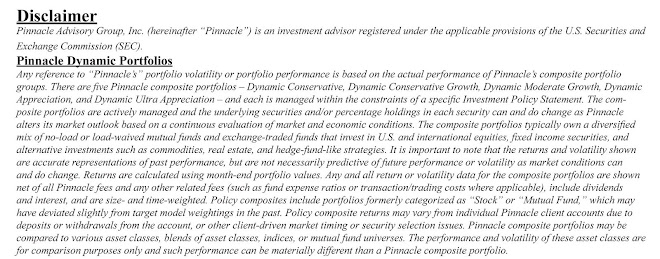We are often cautioned not to use industry jargon when discussing investing with our clients. Deservedly so. Our role is not to baffle them with unintelligible words that make us seem like professionals by using a vocabulary that sounds impressive, even if the concepts that we are trying to explain are simple. But lately I’ve been marveling how many professionals routinely use language in our business that is understood in dramatically different ways by the pros that use them. Here are two examples that come immediately to mind.
Buy and Hold Investing: For most of the investing public buying and holding is understood in the context that Warren Buffet might use the term. As a value investor he attempts to buy firms at large discounts to their intrinsic value. This provides him with a margin of safety if things don’t go well for the company in the short-term. Buffet is prepared to hold the company’s shares as long as necessary to fully realize their full value in his estimation. For strategic, buy and hold portfolio managers, the term not only means something completely different, it implies something completely opposite to Buffet’s philosophy. In this context, investors believe that markets are efficient and therefore it is useless to try and buy securities at a discount to their fair value. The only choice is to buy and hold the asset classes (the term is not typically used to discuss individual stocks) until they earn their expected historical average returns. You see… one term and two completely different meanings.
Another favorite is “portfolio manager.” For most investors, a portfolio is built from two or more securities, no matter what they are. If you own four U.S. common stocks you have obviously created a portfolio and therefore are a portfolio manager. But in our (Pinnacle’s) scheme of things, any manager who can be benchmarked to one asset class (in this case U.S. stocks) and who is constrained by prospectus to only acquire securities in that one asset class, is better termed as a “money manager.” If you are not a professional investor but your portfolio consists of 30 individual U.S. stock positions, or bond positions, or commodity positions, or whatever, then you are considered by us to be acting like a money manager and not a portfolio manager. Today, portfolio managers manage portfolios that own several different and globally diversified asset classes. For us there is a huge difference between managing a multi-asset class portfolio and a 30 stock jockey who may be a fantastic money manager but by definition has built a lousy, one asset class portfolio. After 27 years in this business I’m still amazed at how hard it is to communicate the nuances of what we do for a living.
skip to main |
skip to sidebar
Subscribe via email
Who is Echoing from the Pit
This blog represents the individual opinions of the Investment Team at Pinnacle Advisory Group in Columbia, Maryland
The Investment Team comprises:
Ken Solow, CFP, CLU, ChFC
Rick Vollaro, CPA
Carl Noble, CFA
Sean Dillon
Sauro Locatelli
To learn more about Pinnacle please visit our website at http://www.pinnacleadvisory.com/
The Investment Team comprises:
Ken Solow, CFP, CLU, ChFC
Rick Vollaro, CPA
Carl Noble, CFA
Sean Dillon
Sauro Locatelli
To learn more about Pinnacle please visit our website at http://www.pinnacleadvisory.com/
About Me
- Echoes from the Pit
- Columbia, Maryland, United States
Pinnacle in the News
Blog Archive
-
▼
2011
(169)
-
▼
April
(17)
- A New Cyclical High
- The Strange Language of Professional Investing
- Crude Oil Momentum
- Sector Rotation in Practice
- First Quarter Market Review
- Point and Figure of Natural Gas
- Is the U.S. the Next Greece?
- Worrying About the Wrong Risk
- Defensives Starting to Lead
- A Lot of Speculative Money in the Oil Pits
- Wow, Silver
- The Proper Investment Time Horizon
- Dollar Breaking Down
- Review of Global Central Bank Policy
- Pharmaceuticals Beginning to Show Some Life
- Life Isn’t Always Linear
- Coal a Winner on Nuclear Concerns
-
▼
April
(17)

